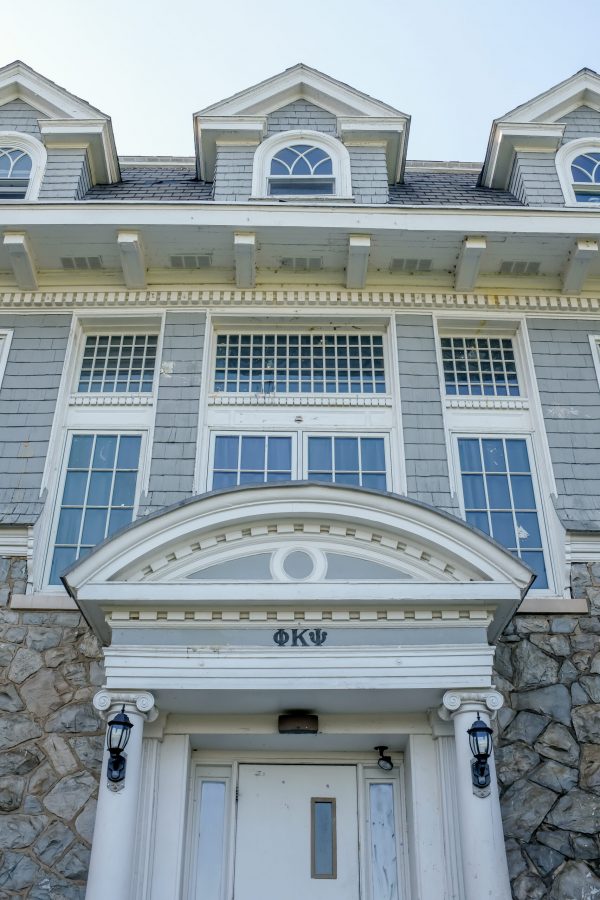After an alleged party was held in the Phi Kappa Psi basement in late February, the fraternity was charged with three violations: failure to comply with COVID-19 policies, serving alcohol to minors and having an unregistered event with alcohol.
Phi Psi was found not guilty on all three charges after a Faculty Committee on Student Conduct hearing was held at the end of March.
“All hearings at Lafayette are adjudicated using a standard called preponderance of the evidence,” Assistant Dean of Students Jenn Dize wrote in an email. “This means that a case administrator or hearing panel must believe it is more likely than not that a student or organization violated the Code of Conduct in order to find them responsible. In this case, the panel did not find that a preponderance of evidence existed.”
Photos of the alleged event were obtained and reviewed by The Lafayette and show maskless members of Phi Kappa Psi and Alpha Phi in the basement of the Phi Psi house. The college’s policy states that all students must wear face masks when outside of their residence hall room or apartment.
A member of the hearing committee confirmed that there was written and photographic evidence presented during the hearing, but said that the committee “just felt that there was not enough evidence and information” to merit a conviction.
“Really when it came down to it, we just can’t…make decisions on what-ifs, we have to make decisions on facts,” said Ken Burns, assistant director of residence life.
Burns added that the evidence included a mixture of anonymous reporting, in-person testimony and information being shared “all around.” He said that the evidence presented was “not hearsay” but was also not submitted by people who attended the alleged social gathering.
Others close to the case were tight-lipped. Phi Psi President Tate Harobin ’22 did not respond to a request for comment. English Professor Walter Wadiak, a faculty member on the committee, said that he does not comment on conduct proceedings. Jonathan Sosa-Ponce ’21, a student representative on the hearing committee, said he did not feel comfortable commenting on the case. Kaitlyn Bladt ’22, a student representative on the hearing committee, did not immediately respond to a request for comment.
Delta Kappa Epsilon President Hank Scheffler ’22, who serves on the Interfraternity Council (IFC), the governing body for fraternities, said that the IFC board “was given absolutely no indication that Phi Psi was under investigation.”
It is unclear whether individuals who were implicated in the alleged party will go through the conduct process, but it appears that the case is closed after Phi Psi was found not responsible.
Angela Perkins, the faculty chair of the committee, said she was not aware of any ongoing cases or conduct hearings against individuals who were linked to the alleged event.
“In this case, we really just focused on the organization,” Burns said.
Burns said that the committee strives to reach a unanimous agreement, although the committee makes its decisions on a majority vote, according to the Lafayette website. The faculty members outnumber the student representatives three to two.
“What we focus on is making sure all of us are in agreement and we’re all on the same page,” he added. “We want to make the right decision, we don’t want to just jump out and rush it. It’s not meant to be a rushed process.”
Members of the conduct committee refused to elaborate on the deliberations of the hearing and whether there was any disagreement between the members. Perkins declined to elaborate on any hypothetical situations, and said she was not sure if a message had been sent out to the campus community to inform them of the case resolution. As of Thursday morning, no such message had been sent.
Disclaimer: Managing Editor Andrew Hollander ’21 is a member of the Delta Tau Delta fraternity.






















































































































